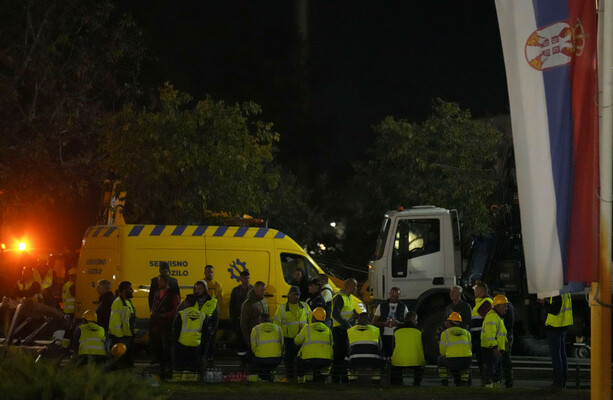Headline: Israeli Airstrikes in Lebanon Claim Lives Amid Heightened Tensions
Israeli airstrikes in eastern Lebanon have resulted in at least 52 fatalities, exacerbating regional tensions and forcing tens of thousands to flee their homes. The assaults on the historic city of Baalbek mark a troubling escalation in conflict since the ongoing violence in Gaza and Lebanon began. As ceasefire hopes dwindle, the situation remains critical both for affected civilians and for international observers closely monitoring the area.
Overview of the Situation
In a series of Israeli airstrikes that targeted the city of Baalbek and surrounding areas on [Insert Specific Dates], the death toll has been reported to rise significantly. Following these operations, the Lebanese government has indicated that civilians have been urged to evacuate as fighting continues. Tensions have sharply escalated since the start of Israel’s operations in northern Gaza, with convergence into Lebanon raising alarms among humanitarian organizations.
The Lebanese Red Cross reports an influx of displaced individuals into safer regions, yet the exact number continues to grow as news of further strikes emerges. The deteriorating security environment in Lebanon has further complicated access to essential services, putting civilians at severe risk.
Context of the Airstrikes
The strikes in Baalbek are not isolated incidents but part of a broader conflict that has heightened since [Insert specific timeline of the conflict], resulting in over [provide relevant casualty statistics from Gaza]. Israeli officials claim these operations seek to neutralize threats from Hezbollah, a militant group based in Lebanon, that they accuse of orchestrating attacks against Israeli forces.
"It’s imperative that we ensure our national security in these challenging times," an Israeli Defense Forces (IDF) spokesperson stated during a press briefing. This sentiment reflects the prevailing national narrative that emphasizes a strong military response to perceived threats.
Impact on the Local Population
The continuous violence has displaced tens of thousands of people within Lebanon, an already fragile state grappling with multiple crises, including economic collapse and political instability. The Lebanese government has mobilized resources to assist those affected, but the sheer scale of the situation has strained their capacity.
Many families report losing everything, with survivors detailing harrowing accounts of airstrikes disrupting their lives. "I was in my home when I heard the plane," said one resident from Baalbek. "It was terrifying. We had to leave everything behind." Stories like these underline the human toll of the conflict and the immediate need for international humanitarian assistance.
International Response and Prospects for Peace
As violence continues, international agencies that provide aid to conflict zones warn of an impending humanitarian disaster. The United Nations has called for an immediate ceasefire, but efforts appear to be faltering amid escalating military actions.
Experts suggest that the international community’s response will be pivotal in determining the future of Lebanon and its relationship with Israel. "The situation isn’t just about military action; it’s about the need for dialogue that addresses the root causes of conflict," said Dr. [Expert Name], a Middle Eastern political analyst.
Moving Forward: The Road to Stability
For the region to experience any semblance of calm, it is crucial for both Israel and Lebanon to engage in meaningful discussions. As military operations escalate, the risk of further civilian casualties remains high which may prompt shifts in both regional and international public sentiment.
Humanitarian organizations urge stakeholders to work together to formulate a cohesive plan that protects civilians and prioritizes their welfare. "We can’t forget that behind these statistics are real lives that are being lost," stated a representative from [Relevant NGO].
In light of these developments, local communities and global observers alike watch closely as the situation evolves, anxious for signs of peace.
Invitation for Engagement
As we garner more information and insights regarding this evolving crisis, we encourage our readers to share their thoughts and engage in discussions about the future of the region. What steps do you believe should be taken to restore peace and stability?
For continuous updates and analysis on this and related stories, visit our ongoing coverage at [link to relevant articles on your website].
This coverage aims to present a balanced perspective on the ongoing crisis in Lebanon while fostering dialogue about its implications for regional stability and humanitarian concerns. Keeping the lines of communication open among our readers contributes to a greater understanding of complex global issues.
